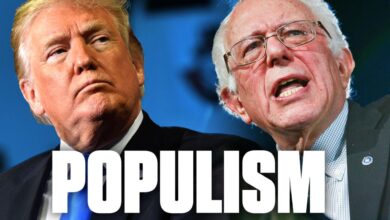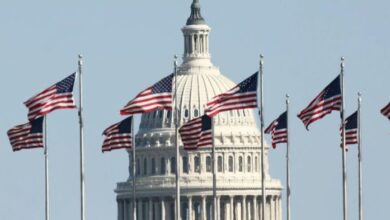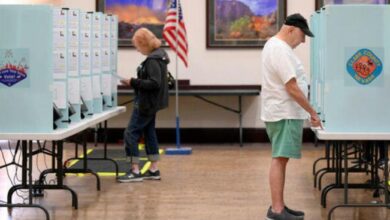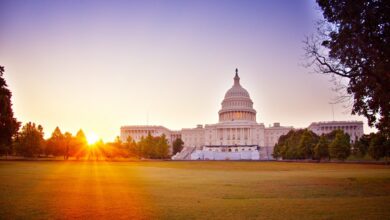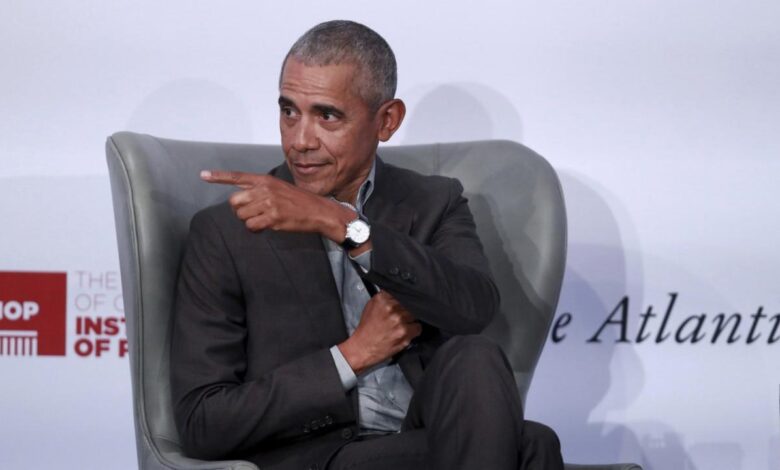
Obama Calls for More Social Media Regulation
Obama Calls for More Regulatory Oversight of Social Media Giants, a statement that has ignited a heated debate about the role of social media platforms in our society. Former President Barack Obama, in a recent address, voiced his concerns about the growing influence of social media giants and called for increased regulatory oversight to address issues like data privacy, content moderation, and the spread of misinformation.
Obama’s statement comes at a time when the public is increasingly scrutinizing the power and reach of tech giants, questioning their impact on democracy, free speech, and the very fabric of our social interactions. His call for regulation has resonated with many who feel that social media platforms are operating with too much unchecked power, leading to a myriad of societal problems.
Obama’s Statement and Context
Former President Barack Obama has been a vocal critic of the growing influence of social media giants and their impact on society. In recent years, he has expressed concerns about the role these platforms play in the spread of misinformation, the erosion of privacy, and the potential for manipulation of public opinion.
Obama’s statement on regulatory oversight of social media giants came during a speech he delivered at Stanford University in October 2021. In this speech, he argued that these companies have become too powerful and that they need to be held accountable for the potential harms they cause.
He called for stronger regulations to address issues like data privacy, content moderation, and algorithmic transparency.
Obama’s Views on Social Media and Technology
Obama has a complex and nuanced perspective on social media and technology. While acknowledging the benefits these platforms offer for communication, connection, and information sharing, he has also highlighted their potential downsides. He has consistently advocated for responsible use of technology and has called for a balance between innovation and ethical considerations.
Obama’s concerns about social media are rooted in his belief that these platforms can be used to manipulate public opinion and undermine democratic processes. He has pointed to the spread of misinformation and the rise of echo chambers as evidence of these dangers.
In his Stanford speech, he emphasized the need for regulations that protect users from these harmful effects.
Obama’s call for more regulatory oversight of social media giants is a timely one, given the growing influence of these platforms in our lives. While the debate on the extent of regulation rages on, it’s important to remember that there are other areas where technology can be harnessed for good.
For example, this new album makes beautiful music out of gravity, the elements, and photosynthesis , showcasing how creativity can be fueled by science and innovation. Perhaps the same spirit of innovation can be applied to finding solutions for the complex issues surrounding social media, leading to a more responsible and ethical digital landscape.
Arguments for Increased Regulatory Oversight
In his recent call for greater regulatory oversight of social media giants, former President Barack Obama Artikeld a series of compelling arguments that highlight the need for a more robust regulatory framework to address the growing concerns surrounding these platforms.
His arguments center around the potential for social media companies to negatively impact society, particularly in areas of privacy, misinformation, and democratic processes.
Potential Benefits of Greater Regulatory Oversight, Obama calls for more regulatory oversight of social media giants
Increased regulatory oversight of social media platforms can potentially bring about a range of benefits, contributing to a more responsible and accountable digital environment.
- Protecting User Privacy:Robust regulations can establish clear guidelines for the collection, use, and sharing of user data, ensuring greater control over personal information. This can help prevent the misuse of sensitive data for targeted advertising, profiling, or other potentially harmful purposes.
- Combating Misinformation and Disinformation:Regulation can empower platforms to effectively identify and remove harmful content, including false or misleading information that can spread rapidly and undermine public trust. This can include measures to combat the spread of conspiracy theories, propaganda, and hate speech.
Obama’s call for more regulatory oversight of social media giants feels like a call to action for a much larger shift. It’s not just about controlling algorithms, it’s about reimagining the entire social fabric. We’re not just resigning from jobs, we’re resigning from the way things have always been.
It’s time for a great reimagination , one that includes a more responsible and accountable digital landscape. The way we interact online, the information we consume, and the impact it has on our lives – all of this needs a critical re-evaluation.
And that re-evaluation starts with recognizing the power of social media giants and the need for responsible oversight.
- Promoting Fair Competition:Regulations can address concerns about market dominance and anti-competitive practices, fostering a more level playing field for smaller players and encouraging innovation. This can help prevent the consolidation of power in the hands of a few dominant platforms.
- Protecting Democracy:Regulations can address the potential for social media platforms to be exploited for political manipulation, including the spread of foreign interference and the undermining of democratic processes. This can involve measures to ensure transparency in political advertising, combat the spread of disinformation campaigns, and protect against foreign interference.
Comparison and Contrast of Arguments for and Against Regulation
The debate over the regulation of social media platforms often centers around the potential benefits versus the potential drawbacks.
- Arguments for Regulation:Proponents of regulation argue that it is necessary to address the growing societal harms associated with social media, including the spread of misinformation, privacy violations, and the potential for political manipulation. They point to the lack of self-regulation by these companies and the need for external oversight to ensure responsible behavior.
- Arguments Against Regulation:Opponents of regulation argue that it can stifle innovation, limit free speech, and create unnecessary bureaucratic burdens on companies. They contend that social media companies are already taking steps to address these concerns and that government intervention is not necessary.
Obama’s call for more regulatory oversight of social media giants feels increasingly relevant as we see companies like State Farm bowing to pressure from conservative groups. The recent decision to state farm drops support of lgbtq kids books after conservative furor highlights the influence of online echo chambers and the need for platforms to be held accountable for the spread of misinformation and hate speech.
It’s a stark reminder that social media giants wield immense power, and without stricter regulations, they can easily be used to silence marginalized voices and push harmful narratives.
They also express concerns about the potential for regulation to be used for censorship or to stifle dissent.
Specific Areas of Concern
Obama’s call for increased regulatory oversight of social media giants stems from several pressing concerns about their impact on society. These concerns extend beyond the immediate user experience and encompass broader implications for democracy, privacy, and the very fabric of online discourse.
Data Privacy
Social media platforms collect vast amounts of personal data from their users, including browsing history, location data, contacts, and even biometric information. This data is used for targeted advertising, content personalization, and other purposes, often without explicit consent or transparency.
“The vast amount of data that these companies collect, and the way they use it, raises serious concerns about privacy and the potential for abuse.”
Barack Obama
- Cambridge Analytica Scandal:This infamous case exposed how a political consulting firm, Cambridge Analytica, harvested the personal data of millions of Facebook users without their consent, using it to target political advertising during the 2016 US presidential election.
- Targeted Advertising:Social media platforms use sophisticated algorithms to analyze user data and deliver targeted advertising. This can lead to discriminatory practices, such as showing different job opportunities to men and women based on their perceived interests.
- Data Security Breaches:Data breaches are a constant threat, and social media companies have been vulnerable to numerous incidents, exposing sensitive user information to hackers.
Content Moderation
Social media platforms face a constant challenge in moderating content, balancing freedom of expression with the need to protect users from harmful content, such as hate speech, harassment, and misinformation.
“The question is how to ensure that these platforms are used in a way that promotes constructive dialogue and understanding, rather than division and conflict.”
Barack Obama
- Algorithmic Bias:Content moderation algorithms can perpetuate existing biases, leading to the suppression of certain viewpoints or the amplification of harmful content. For instance, algorithms may be more likely to flag content from marginalized groups as offensive, while ignoring similar content from dominant groups.
- Lack of Transparency:The decision-making processes behind content moderation are often opaque, leading to concerns about censorship and bias.
- The Spread of Hate Speech:Social media platforms have become breeding grounds for hate speech and harassment, contributing to a toxic online environment.
Algorithmic Bias
The algorithms used by social media platforms to personalize content, recommend friends, and target advertising can exhibit bias, amplifying certain viewpoints and suppressing others. This can contribute to echo chambers, where users are only exposed to information that reinforces their existing beliefs, and exacerbate societal divisions.
“We need to be aware of the ways in which algorithms can be used to manipulate and control people’s behavior.”
Barack Obama
- Filter Bubbles:Algorithmic personalization can create “filter bubbles,” where users are only exposed to information that aligns with their existing beliefs, limiting their exposure to diverse perspectives.
- Reinforcement of Prejudices:Algorithms can inadvertently reinforce existing prejudices by recommending content that confirms biases.
- The Spread of Misinformation:Algorithms can contribute to the spread of misinformation by promoting content that is popular or engaging, regardless of its accuracy.
Spread of Misinformation
Social media platforms have become fertile ground for the spread of misinformation and disinformation, which can have significant consequences for public health, political discourse, and social stability.
“We need to find ways to combat the spread of misinformation and disinformation online.”
Barack Obama
- The 2016 US Presidential Election:Russian interference in the 2016 US presidential election involved the use of social media to spread misinformation and influence public opinion.
- The COVID-19 Pandemic:Social media platforms have been used to spread misinformation about the COVID-19 pandemic, leading to vaccine hesitancy and other harmful consequences.
- The Spread of Conspiracy Theories:Social media platforms have contributed to the proliferation of conspiracy theories, which can erode trust in institutions and undermine public discourse.
Impact on Democracy
Social media platforms have a profound impact on democracy, influencing political discourse, elections, and civic engagement.
“Social media can be a powerful tool for democracy, but it can also be used to undermine it.”
Barack Obama
- Political Polarization:Social media algorithms can contribute to political polarization by creating echo chambers and reinforcing existing biases.
- Election Interference:Social media platforms have been used to spread misinformation and influence elections, as seen in the 2016 US presidential election.
- The Rise of Populism:Social media platforms have provided a platform for populist leaders to spread their message and mobilize supporters.
Proposed Regulatory Measures
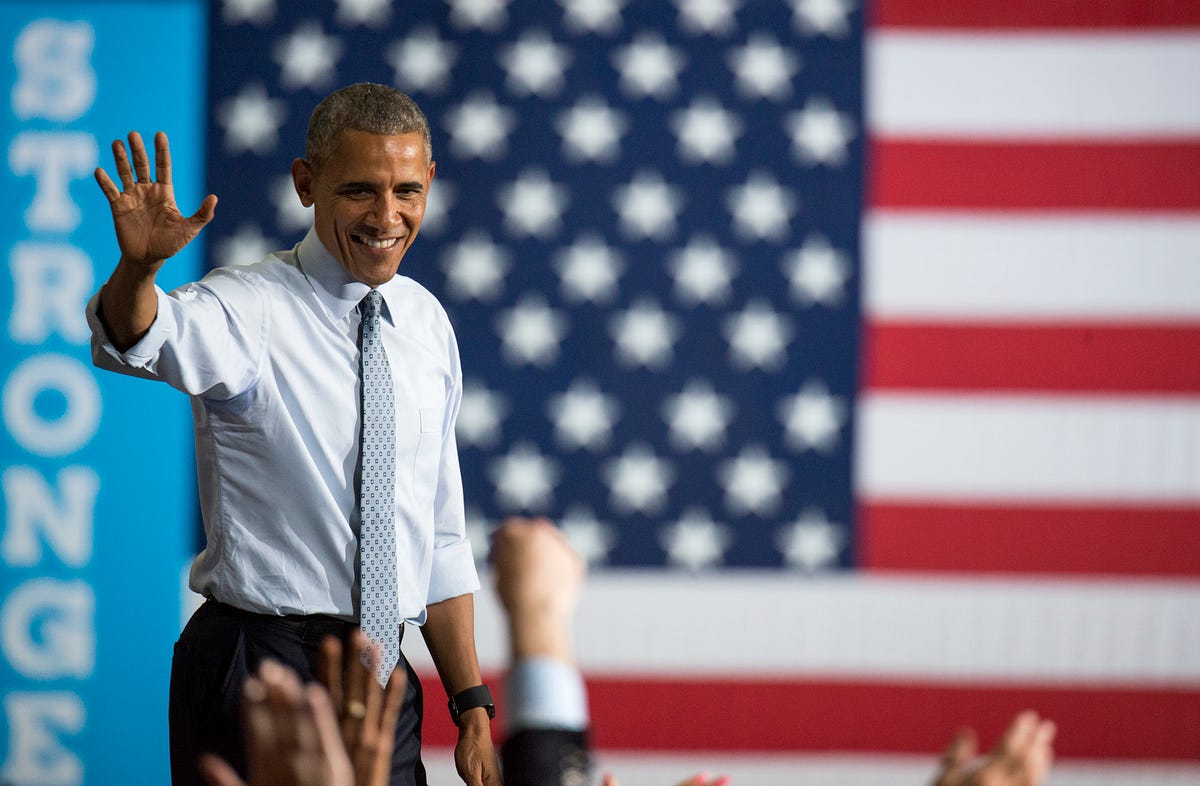
In his statement, Obama Artikels a series of regulatory measures aimed at addressing the concerns he raised regarding social media giants. These proposals aim to curb harmful content, promote transparency, and empower users. The proposed measures draw inspiration from existing regulations in other countries and seek to establish a more robust framework for governing online platforms.
Data Privacy and Security
Data privacy and security are paramount concerns in the digital age, especially given the vast amount of personal information social media platforms collect. Obama advocates for stronger data privacy regulations, modeled after the European Union’s General Data Protection Regulation (GDPR), which gives individuals greater control over their data.
The GDPR mandates companies to obtain explicit consent before collecting and processing personal data and provides individuals with the right to access, correct, and delete their data. Implementing similar regulations in the United States would empower users to control their data and prevent its misuse.
Content Moderation and Transparency
Content moderation is a complex issue that has been the subject of intense debate. Obama calls for greater transparency in how social media platforms moderate content, including the development of clear and consistent guidelines for content removal. This includes providing users with more information about why their content was removed and establishing mechanisms for appealing decisions.
Additionally, he advocates for independent audits of content moderation algorithms to ensure fairness and prevent bias.
Algorithmic Transparency and Accountability
Social media platforms rely heavily on algorithms to personalize content and tailor user experiences. However, these algorithms can be opaque, making it difficult to understand how they work and their potential impact on users. Obama calls for greater transparency in algorithmic decision-making, requiring platforms to disclose how their algorithms operate and their potential effects.
This includes providing users with more control over the algorithms that shape their online experiences.
Competition and Market Concentration
The dominance of a few large social media companies raises concerns about competition and market concentration. Obama advocates for measures to promote competition in the digital marketplace, such as preventing mergers and acquisitions that could stifle innovation and limit consumer choice.
This could involve antitrust actions against companies that engage in anti-competitive practices, such as using their market power to suppress smaller competitors.
Impact and Implications: Obama Calls For More Regulatory Oversight Of Social Media Giants
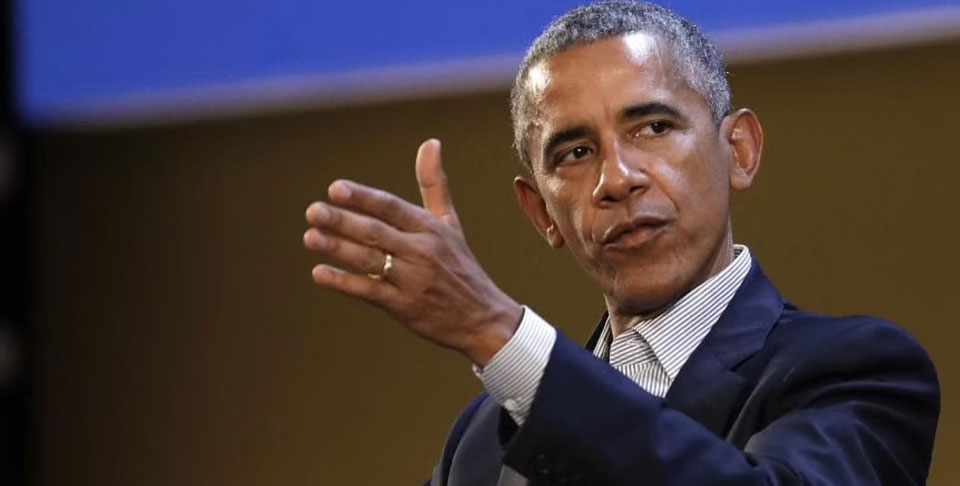
The proposed regulatory oversight of social media giants has the potential to significantly impact these companies, their users, and society as a whole. This section will delve into the potential effects of increased regulation, exploring both the challenges and opportunities that may arise.
Impact on Social Media Companies
Increased regulatory oversight could significantly impact social media companies in various ways. The primary impact would be on their business models, which heavily rely on data collection and targeted advertising. New regulations might restrict the types of data they can collect, how they use it, and how they target users with advertisements.
This could potentially reduce their revenue streams and force them to adapt their business strategies.
- Increased Compliance Costs:Implementing new regulations would require significant investment in technology, infrastructure, and personnel to ensure compliance. This could lead to increased operating costs and potentially affect their profitability.
- Changes in Business Models:Companies might need to adapt their business models to comply with new regulations. This could involve shifting away from targeted advertising and exploring alternative revenue streams, such as subscriptions or user-generated content monetization.
- Potential Legal Challenges:Companies might challenge the new regulations in court, arguing that they are overly burdensome or infringe on their freedom of speech. This could lead to lengthy legal battles and uncertainty in the regulatory landscape.
Impact on Users
Increased regulatory oversight could also impact users of social media platforms. While the intent is to protect users, the effects might be mixed:
- Enhanced Privacy and Data Security:Regulations could lead to improved privacy protections and better control over user data. Users might have more options to manage their data and limit how companies use it.
- Reduced Exposure to Harmful Content:Regulations could help curb the spread of misinformation, hate speech, and other harmful content, creating a safer online environment. This could benefit users, especially vulnerable groups.
- Potential for Censorship:There are concerns that increased regulation could lead to censorship, limiting the freedom of expression and potentially stifling diverse viewpoints. This could be a delicate balancing act between protecting users and safeguarding freedom of speech.
Impact on Society
The impact of increased regulation on social media platforms extends beyond companies and users, affecting society as a whole:
- Increased Trust and Accountability:Regulations could foster greater trust in social media platforms and hold them accountable for their actions. This could lead to a more responsible and ethical online environment.
- Potential for Innovation:Regulations could encourage innovation in the social media industry, as companies seek to find new ways to comply with the rules while maintaining their business models. This could lead to the development of new technologies and services.
- Economic Implications:The impact on the social media industry could have broader economic implications, affecting employment, investment, and the overall digital economy. It’s crucial to consider these broader economic impacts when implementing regulations.
Public Opinion and Debate
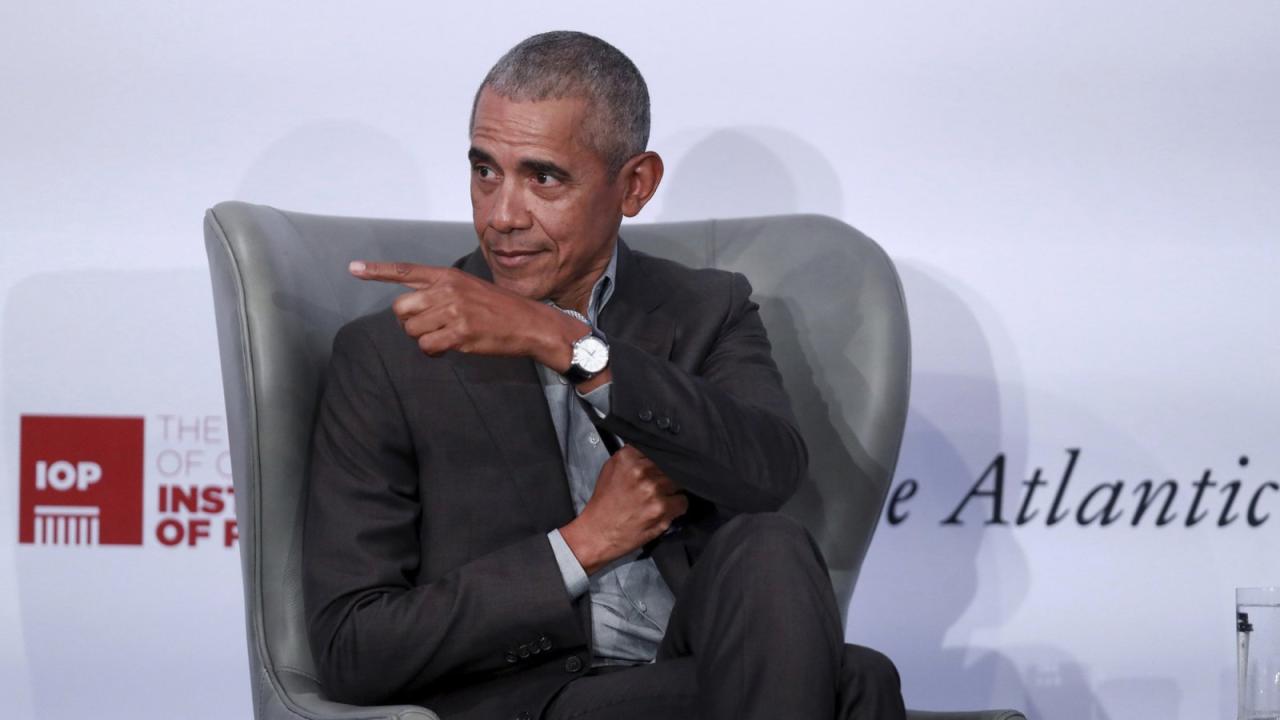
Obama’s call for increased regulatory oversight of social media giants sparked a heated public debate, with diverse opinions emerging from various stakeholders. While some lauded the initiative as a necessary step to address the growing concerns about online platforms’ impact on society, others expressed reservations about the potential for censorship and government overreach.
Social Media Companies’ Perspectives
Social media companies, naturally, have been the most vocal opponents of increased regulation. They argue that self-regulation is more effective and that government intervention could stifle innovation and hinder free speech. They highlight the efforts they’ve already taken to address issues like misinformation, hate speech, and privacy concerns.
- Facebook, for instance, has implemented stricter content moderation policies and invested heavily in artificial intelligence to detect and remove harmful content.
- Twitter has taken steps to combat the spread of misinformation by labeling misleading tweets and suspending accounts that violate its rules.
- Google has introduced initiatives to promote media literacy and combat online disinformation.
Social media companies also argue that government regulation could lead to censorship and stifle the free flow of information, potentially harming democratic discourse.
“Government regulation of social media platforms could lead to censorship and stifle the free flow of information, potentially harming democratic discourse.”
They point to the potential for political bias and the risk of government overreach in determining what constitutes “harmful” content.
Closing Notes
Obama’s call for more regulation of social media giants has sparked a national conversation about the role of technology in our lives. It is clear that the issue is complex, with no easy solutions. Balancing free speech with the need for accountability, ensuring privacy while allowing innovation, and protecting users from harmful content are just some of the challenges that lie ahead.
This debate is likely to continue for years to come, and it will be interesting to see how the landscape of social media evolves in response to these concerns.

